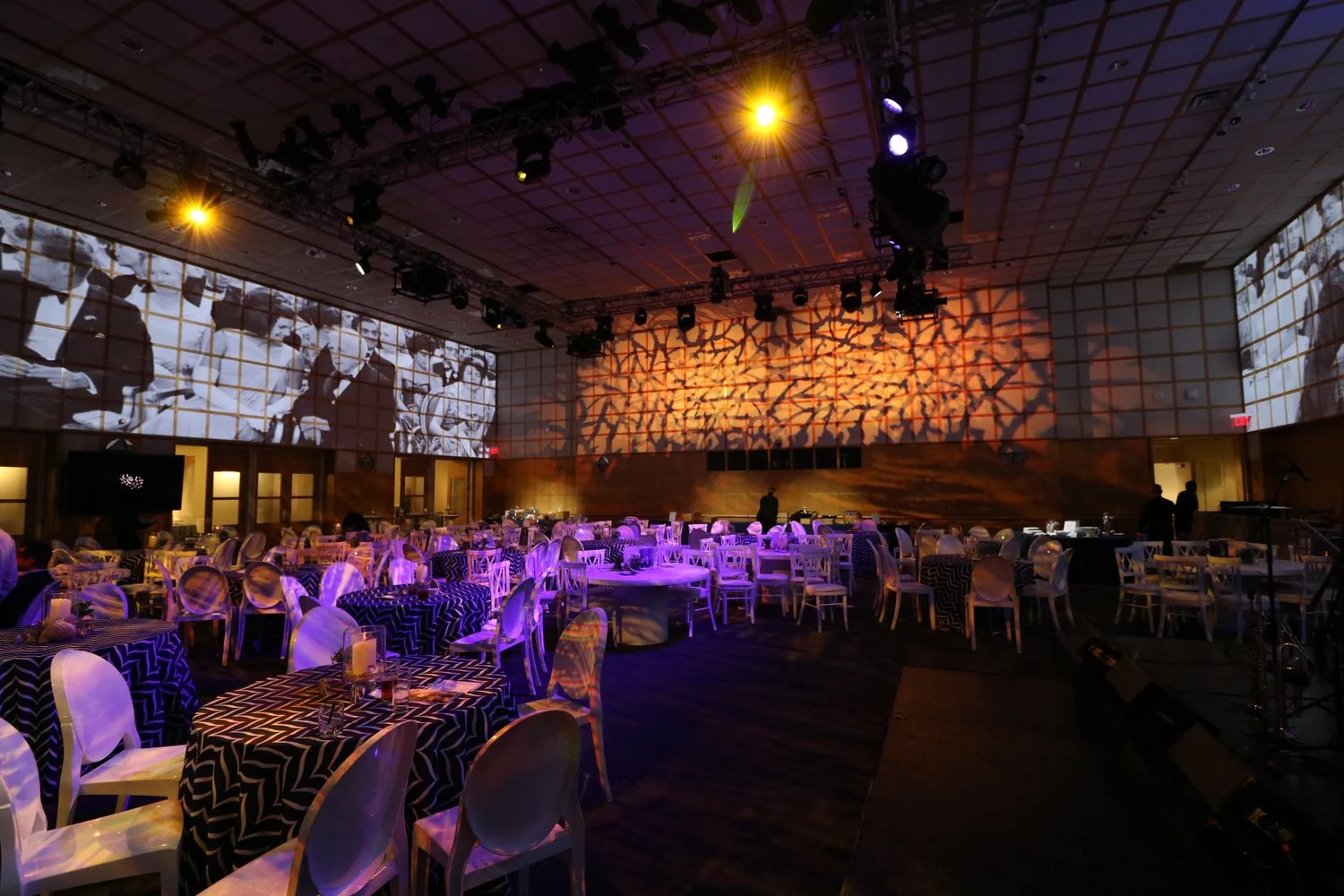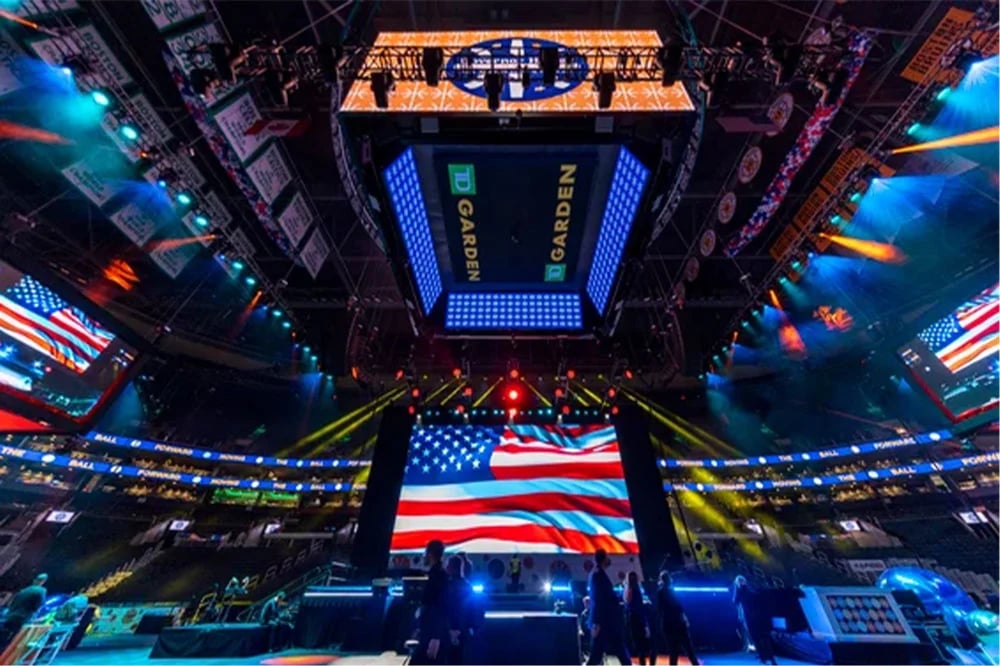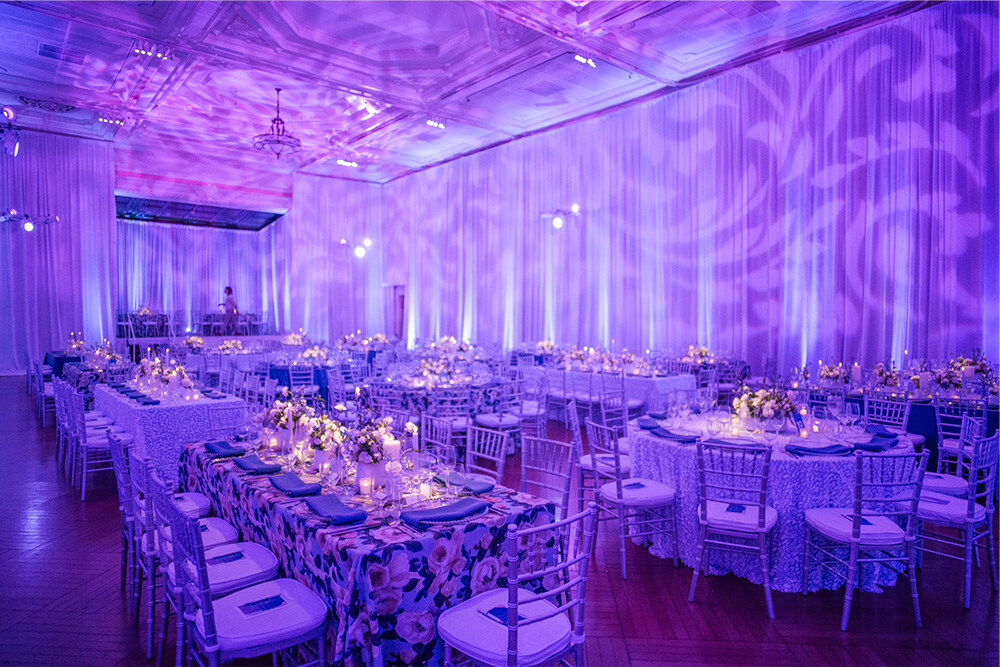Event Lighting & Production
Galas. Fundraisers. Conferences. Concerts. Social Events. Corporate Meetings. Trade Shows. Whatever unique challenge your event presents, PORT will bring it to light in dazzling fashion.
Galas. Fundraisers. Conferences. Concerts. Social Events. Corporate Meetings. Trade Shows. Whatever unique challenge your event presents, PORT will bring it to light in dazzling fashion.
Whether we’re tasked with just Lighting Production Services, Production Design, Technical Production Management, Corporate Production Services, or all event production services, we love that our clients consider us partners throughout the collaborative event development process. No matter the size of your celebration, from an intimate gathering to a city-wide festival, we promise our meticulous attention to detail will shine through as we strive to exceed your expectations in achieving your desired WOW factor. We work everywhere thanks to our network of carefully identified national and global partners. Wherever your project is, so is PORT.

86th Annual Meeting of the United States Conference of Mayors
Learn how PORT tackled creative, logistical, and technical challenges for the US Conference of Mayors.

Event Production for Massachusetts Governor
Teamwork and preparation save the day at a grand-scale event with unexpected plot twists.

Testimonials
View our testimonials and why our clients choose PORT.
Our Services Include:
What Goes Into Lighting Production Services?
Lighting Production Services, or (LPS) is the process of developing a lighting design for an event or show and providing the required lighting equipment and personnel for the on-site setup, operation, and breakdown of the lighting system.
Elements included in the LPS process include:
-
Planning meetings and site inspections
-
Creating a lighting design and plot (We are also happy to work with your independent lighting designer to provide supporting lighting services)
-
On-site installation, operation, and breakdown.
-
Ensuring all proper safety protocols are followed.
Optional services depending on the needs of the project:
-
Renderings
-
Pre-visualization videos
-
Pre-programming
What Is The Process of Lighting Production Services?
It all starts with a brainstorming of ideas and concepts to identify the desired look and feel for the event or show to create a lighting design. The next step is to create a lighting plot which is a blueprint that shows the selected lighting fixtures, locations, control channel, and circuiting information.
The lighting plot is used to generate the paperwork needed for shop preparation and on-site installation including load-in, rigging, hang, focus, programming, show run, and break down.
Production Design encompasses the process of taking all visual and audio aesthetics of event production from their first conception into a ready-to-build blueprint. Every element of an event environment has been touched by a Production Designer.
A Production Designers job is to take an idea and turn it into a reality by creating step-by-step specifications on how to build an event.
Elements included in the design process are:
-
Audio/Visual
-
Rigging
-
Lighting Elements
-
Scenic Elements
What Is The Process of Production Design?
The Production Design process mapping typically starts out as a broad idea and eventually funnels into great detail by the end of the process. The process begins with a requested theme. It is the designer's job to take this theme into account when mapping out all technical aspects of the design.
The designer starts out with physical sketches that eventually turn into virtual renderings and pre-visualizations. The customer can then review what their event aesthetic will look like and make preferred adjustments prior to the physical setup. The beauty of Production Design is that an event can be pre-visualized and all aspects tweaked until the perfect design is achieved.
Once the renderings have been agreed on by both the customer and designer, these virtual environments are translated into blueprints. These can then be passed onto a Technical Production Manager who proceeds with managing and building the design. Production Design is an essential part of the process for creating any type of event, no matter the size or scale.
Technical Production Management, or (TPM), encompasses the process of taking all visual and audio aesthetics of an event from its ready-to-build blueprint through to the real-time production of an event.
A TPM’s job is to manage all technical elements required to bring the technical production to life.
Elements included in the TPM process are:
-
Audio/Visual
-
Rigging
-
Lighting Elements
-
Scenic Elements
-
Power Distribution
What Is The Process of Technical Production Management?
The Technical Production Management process comes after the Production Design process. The TPM uses a blueprint of the design to build the technical aspects of the event.
The process begins with the TPM taking all information provided and bringing in all needed elements for the production. It is the manager's job to provide the turnkey services for all technical elements required to bring the production to life. The manager starts out by bringing in all the required elements, managing these elements, and ensuring the entire event runs smoothly from setup to takedown.
Corporate Production Services, or (CPS), encompasses the Production Design and Technical Production Management processes to ensure an event's requested technical aesthetics are achieved.
A Corporate Technical Production Manager's job is to design the step-by-step production specifications for an event as well as provide general contracting services to bring in and manage all elements within the production process.
Elements included in the CPS process are:
- Production Design
- Technical Production Management
- Rigging, Audio/Visual, Lighting
What Is The Process of Corporate Production Services?
The Corporate Production Services process includes both Production Design as well as Technical Production Management of the elements listed above. The CorporateTechnical Production Manager uses the blue-print of the production design to build the lighting/rigging/AV aspects of the event.
The process begins with a Production Designer building a specification that meets the required technical aesthetics. Once a design has been approved, the Technical Production Manager proceeds with managing the technical production services to ensure all needed elements are available and built for the day of the event.



.webp?width=2500&height=1668&name=Emmanuel%2BCollege%2BGlass%2BTent%2Bby%2BNight%2BPort%2BLighting%2BSystems%20(1).webp)
.webp?width=2500&height=1667&name=2015%20(1).webp)
.webp?width=1000&height=667&name=g2%20(1).webp)


.jpg?width=1000&height=667&name=pops-test%20(2).jpg)
.webp?width=1000&height=667&name=g4%20(2).webp)
.webp?width=2500&height=1667&name=Unicef%2BGala%2BPort%2BLighting%2BSystems%2BColorful%2BLED%2BLighting%2Band%2BTwinkle%2BSpotlights%20(4).webp)




.webp?width=1000&height=667&name=event%20lighting%20(1).webp)
.webp?width=1000&height=667&name=2023%20Winter%20Classic%20(1).webp)